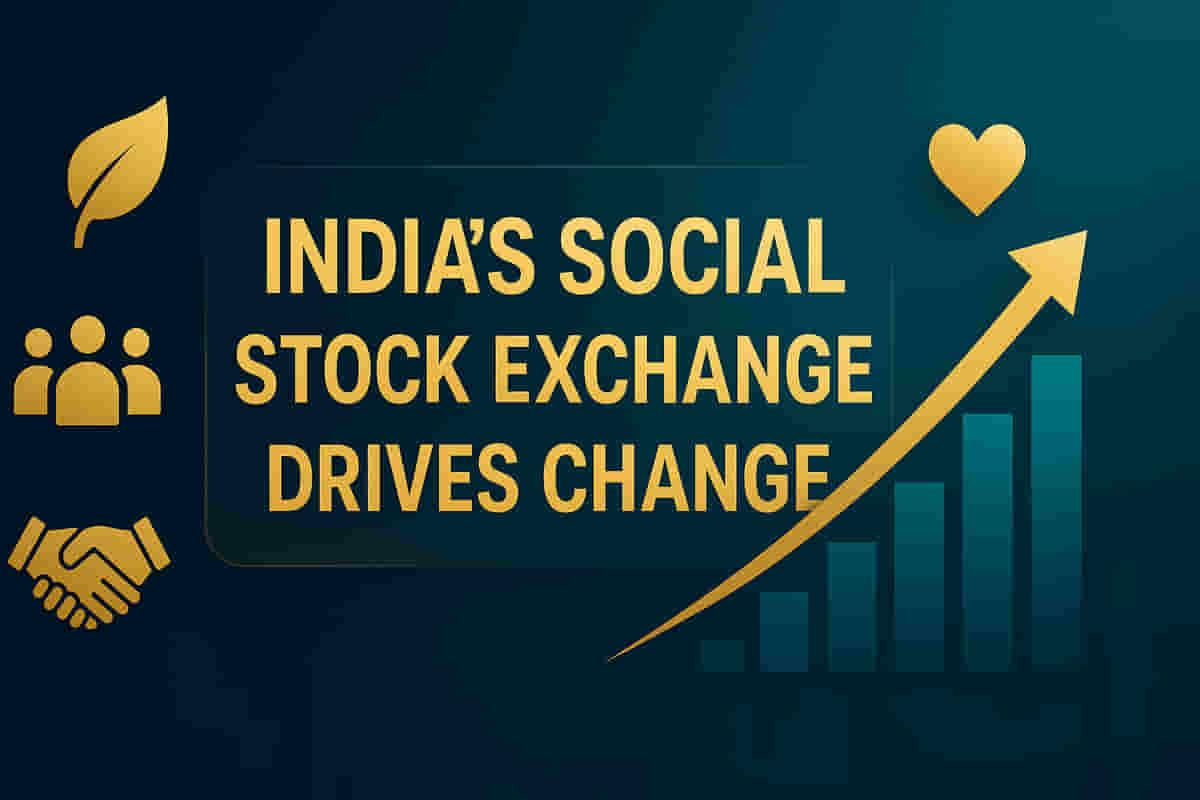India's Social Stock Exchange Empowers NGOs, Drives Social Impact
SEBI/Exchange
|
Updated on 01 Nov 2025, 12:40 am
Reviewed By
Aditi Singh | Whalesbook News Team
Short Description :

▶
Detailed Coverage :
The Indian Social Stock Exchange (SSE) is an innovative platform launched by SEBI (Securities and Exchange Board of India) to facilitate fundraising for non-profit organizations (NGOs) and social enterprises. It aims to bring transparency and structure to social impact investing, similar to how traditional stock exchanges operate for companies.
Unlike conventional stock exchanges where investors buy shares for financial returns, the SSE allows individuals and entities to contribute to specific social projects listed by NGOs. The 'return' on investment is measured by the social impact created, such as improvements in education, healthcare, or environmental sustainability, rather than financial dividends. NGOs must meet strict eligibility criteria and undergo a listing process akin to companies on the NSE or BSE.
The SSE was conceived in the 2019-20 Union Budget and brought to life by SEBI in 2022. It offers a significant opportunity given the projected growth in social sector funding and the large base of demat accounts in India. The minimum investment threshold has been progressively reduced to ₹1,000, making it accessible to individual donors. This platform helps small NGOs gain much-needed visibility and credibility, addressing the funding deficit faced by many. NGOs listed on the SSE are required to provide transparent reports on fund utilization and social impact achieved, ensuring accountability. The SSE also enables NGOs to cover operational costs like salaries and training, fostering long-term sustainability and innovation.
Impact This initiative has the potential to revolutionize social sector funding in India by channeling focused investments towards development initiatives aligned with the United Nations' Sustainable Development Goals (SDGs). It empowers NGOs, encourages greater donor participation, and accelerates nation-building by supporting measurable social and environmental impact at scale. Rating: 9/10
Difficult Terms Explained: * **Social Stock Exchange (SSE)**: A marketplace for non-profit organizations and social enterprises to raise funds by listing their projects, focusing on social impact rather than financial returns. * **Non-profit Organizations (NGOs)**: Organizations established for purposes other than generating profit, typically dedicated to social causes, charity, or public service. * **SEBI (Securities and Exchange Board of India)**: The regulatory body responsible for overseeing the securities market in India. * **Demat Accounts**: Accounts used to hold securities (like shares and bonds) in electronic form. * **United Nations' Sustainable Development Goals (SDGs)**: A set of 17 global goals adopted by the UN in 2015, aimed at achieving a sustainable future for all by 2030. * **NSE (National Stock Exchange)**: One of the leading stock exchanges in India, where companies list their shares. * **BSE (Bombay Stock Exchange)**: Another major stock exchange in India. * **FY (Financial Year)**: A period of 12 months for which a company or government prepares its accounts, usually from April 1 to March 31 in India. * **CDSL (Central Depository Services Limited)**: A depository that holds financial instruments like shares and bonds in electronic form. * **NSDL (National Securities Depository Limited)**: Another major depository in India. * **E-IPO**: Electronic Initial Public Offering, the process of selling new shares to the public online.
More from SEBI/Exchange
Latest News

Auto
Suzuki and Honda aren’t sure India is ready for small EVs. Here’s why.

Brokerage Reports
Stocks to buy: Raja Venkatraman's top picks for 4 November

Mutual Funds
Quantum Mutual Fund stages a comeback with a new CEO and revamped strategies; eyes sustainable growth

Tech
Why Pine Labs’ head believes Ebitda is a better measure of the company’s value

Banking/Finance
SEBI is forcing a nifty bank shake-up: Are PNB and BoB the new ‘must-owns’?

Industrial Goods/Services
India’s Warren Buffett just made 2 rare moves: What he’s buying (and selling)
Renewables Sector

Renewables
Brookfield lines up $12 bn for green energy in Andhra as it eyes $100 bn India expansion by 2030
Energy Sector

Energy
India's green power pipeline had become clogged. A mega clean-up is on cards.
Renewables Sector

Brookfield lines up $12 bn for green energy in Andhra as it eyes $100 bn India expansion by 2030
Energy Sector
